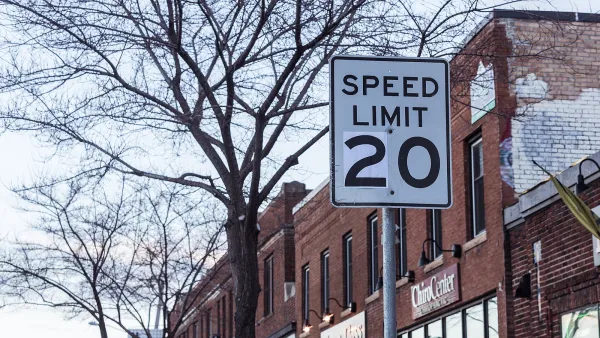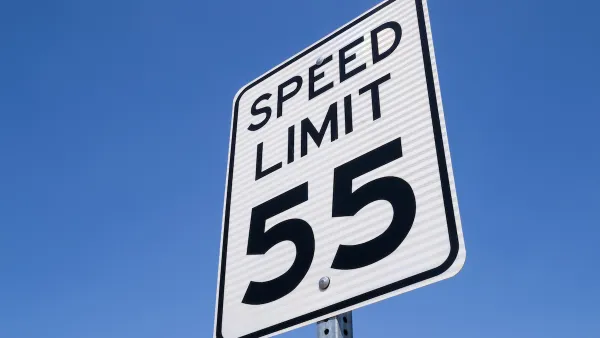After voting to lower speed limits citywide, Richmond found itself with a $5.2 million bill for new signage, prompting the city council to pull the ordinance.

When the Richmond, Virginia city council voted to lower its default speed limit to 20 miles per hour in an effort to reduce the risk of death or severe injury in crashes involving pedestrians, they were told that the change would cost $5.2 million.
As Wyatt Gordon explains in Greater Greater Washington, lowering speed limits is shown to vastly improve the chances of survival during a crash. “A person hit by a car traveling 30 mph is 70% more likely to be killed than if struck by a driver going 25 mph, for example. Assuming Richmonders one day follow a citywide 20 mph default speed limit, pedestrians would face a 93% chance of surviving any given crash in the River City.”
But Richmond city officials are interpreting the change to mean a new speed limit sign on every block, which drives up the cost of the project. As Amy Robins, council liaison for the 5th district, explained, “Our office couldn’t justify that amount spent on signs versus narrowing roads and adding bike lanes and raised crosswalks, so we pulled the ordinance.” The ordinance also would not have applied to state-owned streets that pass through Richmond.
“For now, Richmond residents can submit a request for a new speed limit sign on their streets as low as 15 mph via the RVA 311 app.” Out of 15 civic associations in the 5th District, 14 have already applied for lower speed limits, signaling a strong demand for safer streets. According to Gordon, “Del. Carr plans to introduce a bill to the General Assembly this month that would remove the need for costly individual block signage and traffic studies, and allow any Virginia locality to instead post default speed limit signs at its borders to notify drivers of the lower limit.”
FULL STORY: Why should it cost $5.2 million to lower the speed limit 5 mph in Richmond?

Analysis: Cybertruck Fatality Rate Far Exceeds That of Ford Pinto
The Tesla Cybertruck was recalled seven times last year.

National Parks Layoffs Will Cause Communities to Lose Billions
Thousands of essential park workers were laid off this week, just before the busy spring break season.

Retro-silient?: America’s First “Eco-burb,” The Woodlands Turns 50
A master-planned community north of Houston offers lessons on green infrastructure and resilient design, but falls short of its founder’s lofty affordability and walkability goals.

Test News Post 1
This is a summary

Analysis: Cybertruck Fatality Rate Far Exceeds That of Ford Pinto
The Tesla Cybertruck was recalled seven times last year.

Test News Headline 46
Test for the image on the front page.
Urban Design for Planners 1: Software Tools
This six-course series explores essential urban design concepts using open source software and equips planners with the tools they need to participate fully in the urban design process.
Planning for Universal Design
Learn the tools for implementing Universal Design in planning regulations.
EMC Planning Group, Inc.
Planetizen
Planetizen
Mpact (formerly Rail~Volution)
Great Falls Development Authority, Inc.
HUDs Office of Policy Development and Research
NYU Wagner Graduate School of Public Service




























